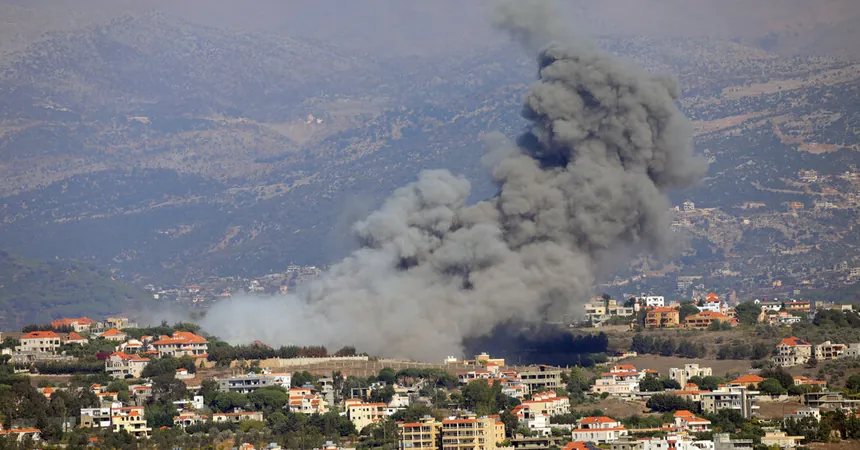
Cease-Fire Proposal Emerges Amid Growing Tensions between Israel and Hezbollah
2024-09-26
Introduction
In a significant diplomatic move, the United States, alongside European allies and several Arab nations, has put forth a joint cease-fire proposal aimed at halting the escalating violence between Israel and Hezbollah. This initiative is designed to prevent a broader conflict while reigniting long-stalled negotiations between Israel and Hamas in Gaza.
Urgent Need for a Solution
President Biden emphasized the urgent need for a solution at the Israel-Lebanon border to ensure the safety and security of civilians, enabling them to return to their homes. His statement came in a joint address with French President Emmanuel Macron, highlighting that the ongoing hostilities, particularly since the conflict intensified on October 7, pose a serious threat to regional stability.
Support for the Cease-Fire Proposal
Support for the cease-fire proposal has been bolstered by countries including Australia, Canada, Germany, Italy, Japan, Saudi Arabia, the UAE, and Qatar, all calling for a comprehensive 21-day cease-fire across the Lebanon-Israel border. The proposal aims to create “diplomatic space” for further negotiations and alleviate the humanitarian crisis resulting from recent clashes.
Willingness for Discussion
Emerging reports indicate a growing willingness from both Israeli and Lebanese officials to engage in discussions regarding the cease-fire, potentially paving the way for a prompt agreement. Notably, while Hezbollah is not a state entity and thus not formally included in the negotiations, its compliance would likely depend on the Lebanese government's commitment to the cease-fire.
Impact on Gaza Conflict
U.S. officials hope that a temporary halt in fire between Israel and Hezbollah could also alleviate pressure on Hamas's leadership, specifically Yahya Sinwar, potentially leading to a resolution of the ongoing conflict in Gaza. As the violence has surged, it has drawn in significant global attention and concern over the risk of escalating warfare in the region.
Global Diplomatic Efforts
Recent discussions have been focused on coordinating a collective response from multiple nations gathered for the U.N. General Assembly. Secretary of State Antony J. Blinken has been actively engaging with foreign diplomats to solidify support for the cease-fire proposal.
Current Situation
The situation remains volatile, following intense military exchanges that have seen unprecedented casualties in recent weeks. As Israeli forces continue airstrikes and military operations, including hints of a possible ground invasion into Lebanon, the urgency for diplomatic action has never been more acute.
Pressure on President Biden
President Biden faces mounting pressure to promote diplomacy and peace in a region fraught with conflict as he approaches the final days of his administration. With just over 117 days left in office, Biden’s legacy may hinge on his ability to navigate this intricate geopolitical crisis.
Conclusion
As efforts to broker peace continue, the possibility of an all-out regional war hangs in the balance. This delicate diplomatic endeavor is crucial not only for the involved nations but also for the broader stability of the Middle East. Will this cease-fire proposal lead to lasting peace, or is it just another temporary solution? The world watches closely as negotiations unfold!



 Brasil (PT)
Brasil (PT)
 Canada (EN)
Canada (EN)
 Chile (ES)
Chile (ES)
 España (ES)
España (ES)
 France (FR)
France (FR)
 Hong Kong (EN)
Hong Kong (EN)
 Italia (IT)
Italia (IT)
 日本 (JA)
日本 (JA)
 Magyarország (HU)
Magyarország (HU)
 Norge (NO)
Norge (NO)
 Polska (PL)
Polska (PL)
 Schweiz (DE)
Schweiz (DE)
 Singapore (EN)
Singapore (EN)
 Sverige (SV)
Sverige (SV)
 Suomi (FI)
Suomi (FI)
 Türkiye (TR)
Türkiye (TR)